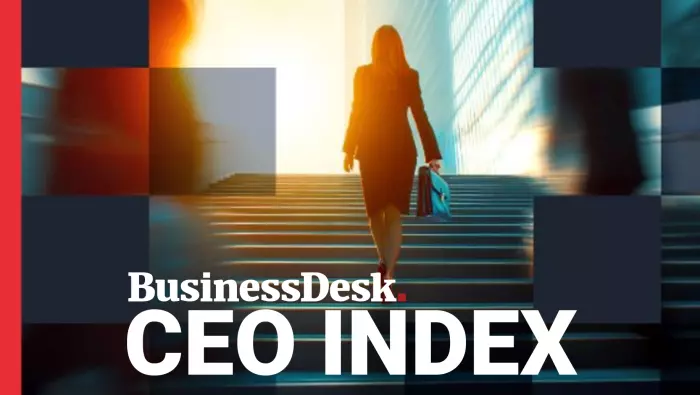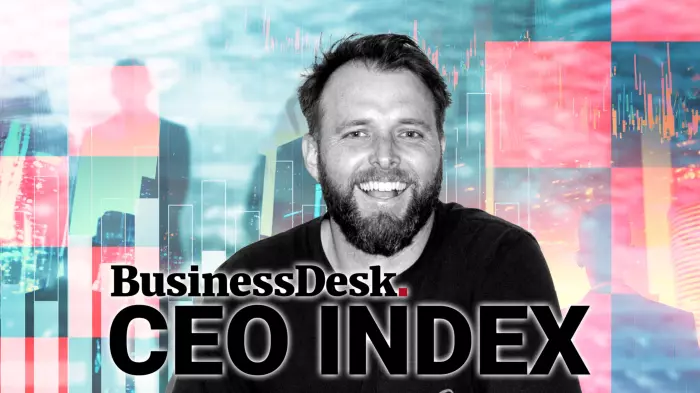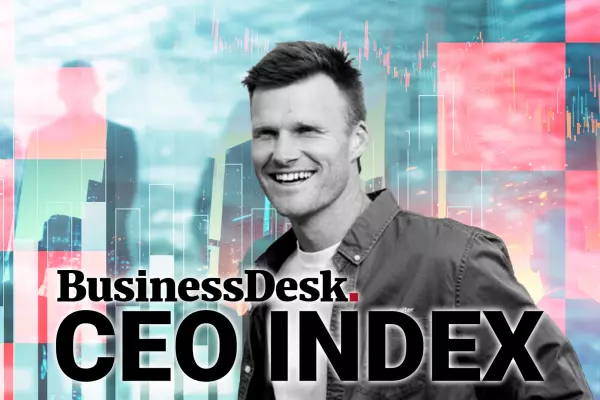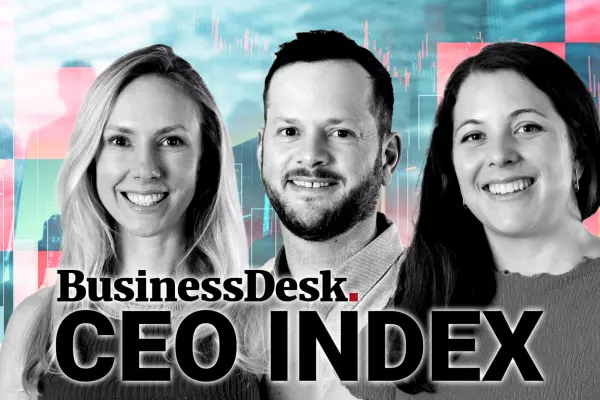BusinessDesk has launched the “CEO Index” to recognise the best leaders in New Zealand business and the public service and to inspire the next generation.
The BusinessDesk CEO Index embodies the editorial strength of the BusinessDesk team, covering the political economy with award-winning co-founder Pattrick Smellie and an experienced team led by editor Victoria Young.
Over the next few weeks, we’ll introduce the chief executives, founders and principals who our team and independent judges believe represent the cream of New Zealand leadership. You may find the finalists intriguing and possibly challenging.
“This launch edition of the CEO Index seeks to highlight qualities of leadership and inspiration that reflect New Zealand,” Smellie says.
“We are deliberately including commercial and public sector leaders in the evaluation, reflecting the importance of the public sector in our political economy, but also to highlight often unsung leadership among our senior civil servants.”
A panel of independent judges, by coincidence all women, and all with serious experience across the spectrum of business and government, ranked the shortlist winnowed down from a BusinessDesk staff longlist. The judges chose the category and overall winners.
Methodology
BusinessDesk wanted the inaugural CEO Index to differ from other industry awards that have a narrower frame of reference or an opinion-led judging tradition, which can lead to highly subjective results and turn-and-turn-about awards.
“We are confident in the robustness of our curated scoring process, which was also applied by our inaugural external judges,” Young says.
The external judges panel included company director Therese Walsh, Jarden co-head of investment banking Silvana Schenone, start-up investor Suse Reynolds and Institute of Directors chief executive Kirsten Patterson.
There is subjectivity in the BusinessDesk CEO Index; the longlist was the result of BusinessDesk editorial staff putting their heads together on who impressed them. For example, primary industries specialist Riley Kennedy knew his sector, as did technology writer Peter Griffin. Their colleagues did the same.
That list of more than 70 business and public sector leaders was then run through a points-based gauntlet to smooth out the risks of the most senior person in the room having excess influence, or subtle differences between candidates getting missed. It may not be perfect – no ranking of this sort is – but it tried to get at what leadership is.
It may be a cliché to quote Good to Great, the best-selling business book by Jim Collins, but there was one reference that felt nearly right for the CEO Index and for New Zealand.
“The good-to-great leaders never wanted to become larger-than-life heroes. They never aspired to be put on a pedestal or become unreachable icons. They were seemingly ordinary people quietly producing extraordinary results,” Collins wrote.
You may find some echoes of that idea of “quiet achievers” in the shortlist and final results of the CEO Index.
I am not a number
It is a myth that management guru Peter Drucker coined the phrase “If you can’t measure it, you can’t manage it.” It is a truth, however, that great leaders like Bill Gates adopted it.
The criteria applied to the longlist for the CEO Index were in that spirit, with a twist.
We used ChatGPT to review leadership surveys around the world. The criteria had been decided by the BusinessDesk team: vision, impact, innovation, resilience, and influence. AI helped define questions for sectors: listed companies, private firms, the public sector, and startups. It needed to be credible, repeatable, defensible, and engaging. It was not definitive.
The questions
ChatGPT suggested questions that seemed about right.
Vision: Does the CEO articulate a clear, long-term strategy for the organisation? To what extent is that vision communicated and understood inside and outside the organisation?
Impact: What measurable outcomes (financial, social, environmental, cultural) have been achieved under their leadership? Has their leadership changed the trajectory of the organisation or the wider sector?
Innovation: Have they introduced new products, services, processes, or business models? Are they seen as fostering a culture of experimentation and improvement?
Resilience: How effectively have they managed crises, setbacks, or market shocks? Do they show consistency in execution under pressure or uncertainty?
Influence: Do they shape industry, policy, or public discourse beyond their own organisation? How strong is their reputation among peers, employees, and stakeholders?
CEOs were then scored out of 10 on each criteria, with 5 being the normal performance one might expect of a senior leader. Below five would be bad, above was good.
That worked well for the BusinessDesk team to create a shortlist from the 70-odd longlist. As expected, it also forced some people to rethink their opinions and ideas of performance. At the judging stage, the panel embraced the idea of an overall score against notional criteria. BusinessDesk expects to develop the methodology over time.
“The criteria on which we judge the CEO Index – vision, impact, resilience, innovation, and influence – is intended to allow us to evaluate the attributes that make a leader genuinely great and an example to others,” Smellie says.
“We intend to develop the CEO Index over time and see this first edition as a catalyst for conversation and ambition.”
Reynolds, a judge and, more importantly, a noted leader in the startup world, embraced the idea of the criteria to try to think more expansively about what it means to be a leader.
“Measuring success by who’s in the headlines or just by revenue growth puts us at risk of missing who’s doing the real work of transformation,” she says, having herself consulted AI to frame her response.
The criteria are: “Capture how leaders build and sustain value – not only financial, but human, social, and environmental – leaders who innovate with empathy, influence with integrity, and build systems that serve the long term…”
Plus: “It’s also a distinctly Kiwi approach: grounded, relational, and future-focused.”
The inaugural CEO Index winners will be announced at an invitation-only function in Auckland in November.
Peter Bale has helped BusinessDesk assemble the inaugural CEO Index.













